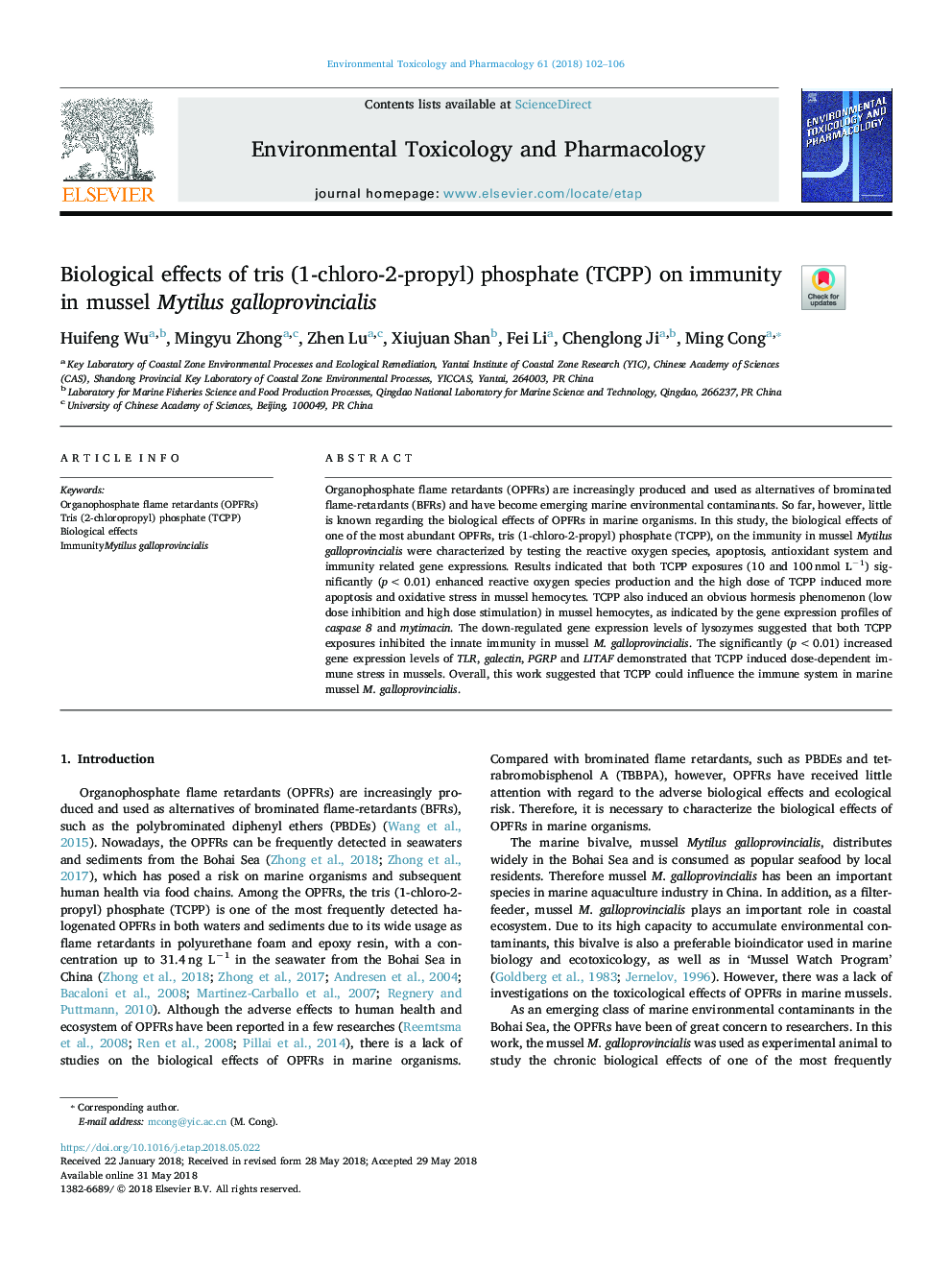| Article ID | Journal | Published Year | Pages | File Type |
|---|---|---|---|---|
| 8545798 | Environmental Toxicology and Pharmacology | 2018 | 5 Pages |
Abstract
Organophosphate flame retardants (OPFRs) are increasingly produced and used as alternatives of brominated flame-retardants (BFRs) and have become emerging marine environmental contaminants. So far, however, little is known regarding the biological effects of OPFRs in marine organisms. In this study, the biological effects of one of the most abundant OPFRs, tris (1-chloro-2-propyl) phosphate (TCPP), on the immunity in mussel Mytilus galloprovincialis were characterized by testing the reactive oxygen species, apoptosis, antioxidant system and immunity related gene expressions. Results indicated that both TCPP exposures (10 and 100â¯nmol Lâ1) significantly (p < 0.01) enhanced reactive oxygen species production and the high dose of TCPP induced more apoptosis and oxidative stress in mussel hemocytes. TCPP also induced an obvious hormesis phenomenon (low dose inhibition and high dose stimulation) in mussel hemocytes, as indicated by the gene expression profiles of caspase 8 and mytimacin. The down-regulated gene expression levels of lysozymes suggested that both TCPP exposures inhibited the innate immunity in mussel M. galloprovincialis. The significantly (p < 0.01) increased gene expression levels of TLR, galectin, PGRP and LITAF demonstrated that TCPP induced dose-dependent immune stress in mussels. Overall, this work suggested that TCPP could influence the immune system in marine mussel M. galloprovincialis.
Related Topics
Life Sciences
Environmental Science
Health, Toxicology and Mutagenesis
Authors
Huifeng Wu, Mingyu Zhong, Zhen Lu, Xiujuan Shan, Fei Li, Chenglong Ji, Ming Cong,
